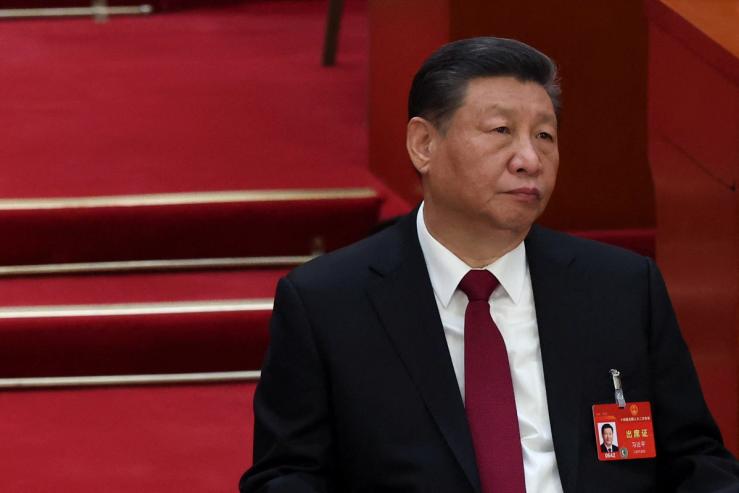The News
Chinese President Xi Jinping told visiting U.S. chief executives Wednesday that growth prospects remain “bright” for the world’s second-largest economy, as the country seeks to woo back foreign investors.
Economic growth has not yet “peaked,” Xi told a group of about 20 CEOs that included Chubb’s Evan Greenberg, Blackstone’s Stephen Schwarzman, and Qualcomm’s Cristiano Amon, while also pledging that Beijing would continue its reforms.
“China’s reforms will not stall, and our opening up will not stop,” state media quoted Xi as saying.
While political tensions with the U.S. have cooled since last year, trade restrictions and security concerns have chilled China’s business environment for foreign firms, leading many to pull out their investments.
SIGNALS
China’s size makes it a necessary market for global firms, but US exports are being squeezed
Western leaders have called on companies to “de-risk” from China, but its sheer market size and vast supply of young, cheap workers means global firms will never be able to fully walk away, according to the BBC’s The Global Story podcast. More than 70% of American firms surveyed by the American Chamber of Commerce in South China said they remained committed to investing in the country because Chinese consumers are still keen on U.S.-made products, and it is much cheaper to make locally than to export, China Trade News reported. Still, American companies are “being squeezed by escalating geopolitical tensions, tit-for-tat measures on trade and exports, and China’s drive for self-sufficiency,” The Wall Street Journal reported. The Biden administration’s move to impose export controls, combined with Beijing’s policies to encourage domestic production, has meant that sales of U.S.-made cars, planes, and semiconductors have been hit particularly hard, the WSJ wrote.
Washington pushes back against Beijing on cheap exports flooding global markets
United States Treasury Secretary Janet Yellen is expected to press Beijing on the issue of cheap green technology flooding global markets when she visits China next month for high-level talks, The South China Morning Post reported. Overcapacity in China has led to a surge in low-cost exports in high-tech manufacturing sectors such as electric vehicle batteries and solar panels, which is threatening to stifle U.S. competition and create “global spillovers,” Yellen is expected to say in a speech on Wednesday. Politics has been allowed to get “in the way of trade” — through U.S. tariffs on Chinese-made solar panels, for example, China tech watcher Matt Sheehan argued in a piece for the Carnegie Endowment for International Peace last year. But the information technology ecosystems of China and California in particular are “deeply intertwined,” he wrote: The U.S. needs cheap Chinese technology to accelerate its green energy transition, while young Chinese talent is critical to California’s startups.
Tesla’s bet on China helped pave the way for domestic firms who now outpace it
Tesla CEO Elon Musk struck a “symbiotic relationship” with Beijing that helped turn the electric carmaker into one of the dominant automobile companies of the 21st century. But Tesla is now losing its edge in the market it helped create, as domestic Chinese firms such as BYD outpace it in sales, The New York Times reported. Musk successfully lobbied Beijing to adopt an emissions mandate — a policy that awards automakers credits for making clean cars — which forced traditional car companies to subsidize those making electric vehicles. He also scored $1.5 billion in low-interest loans from state-run banks to build a Shanghai factory staffed with employees working vastly longer hours than in the U.S. plants, the NYT. But Chinese officials saw Musk’s investments as being to their advantage, with one describing Tesla as an aggressive “catfish” that would force smaller, domestic companies to “swim faster,” the Times reported, and creating a domestic market for suppliers of the components needed to make the cars.



